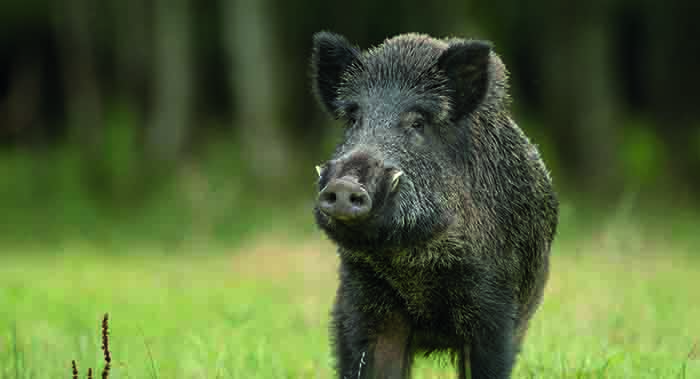The number of outbreaks of African swine fever in domestic pigs in Eastern Europe has continued to increase according to the latest report from the Department for Environment, Food and Rural Affairs (DEFRA).
The main countries affected are Poland, the Baltic States and Russia. The main change is in Poland which has reported a further 19 outbreaks in domestic pigs with the rate increasing in the last week of July. Two are close to the German border.
While most are in small premises, three are larger premises. There are suggestions that Covid-19 has reduced the searches for wild boar carcasses in Poland. Latvia has reported two outbreaks in large domestic pig premises, and Lithuania has reported an outbreak in a small pig premises.
Poland
The ASF situation has deteriorated in Poland, particularly in the last 10 days of July, where there has been a further 19 outbreaks in domestic pigs. While most are small premises with fewer than 30 pigs, three are in larger operations with approaching 2,000 pigs. Most of these are in the east, typically the south-east near the border with Ukraine or in the north east near Kaliningrad.
According to Pig Progress (July 2020), ASF is present in one third of the Polish land area and the infected area in western Poland has been expanding in recent months, although mainly towards the centre of Poland and not towards the German border
Latvia
Latvia reported a further two outbreaks in domestic pig premises, following on from one at the beginning of July which was the first in Latvia since July 2019. While the first premises, described in our last report, was small with only 31 pigs, the two pig premises affected in mid-July are large, one with 9,871 pigs and the other with 1,785 pigs
Lithuania
Lithuania has reported an outbreak in a small pig premises (five pigs) in late July, the first since one in April.
Serbia
Sebia reported an increased number of pig premises with ASF in July, although all outbreaks were at the beginning of the month.
Slovakia
Slovakia reported its first outbreak in pigs this year in early July, albeit in a pig premises with just two animals, on the border with Ukraine and Hungary.
Romania
The number of domestic pig outbreaks in Romania has also increased in July, with Romania as usual reporting the highest monthly number of domestic pig outbreaks, reflecting the large number of backyard operations.
Russia
Russia has reported the largest monthly increase in domestic pig outbreaks, with numbers increasing four-fold in July compared to June.
Hungary
Hungary has still not reported any ASF outbreaks in domestic pigs to date, despite having by far the highest number of wild boar cases every month.
Wild Boar
ASF cases in wild boar continue to be reported in Bulgaria, Estonia, Hungary, Latvia, Lithuania, Poland, Romania, Serbia and Slovakia in July. Wild boar cases are still occurring in western Poland with some close to the border with Germany. Hungary, Poland and Romania continue to report the highest monthly totals of wild boar cases, but numbers are lower than June and continue to decline month-on-month from the peaks at the start of the year. ASF in wild boar is slowly spreading west towards Austria
Conlcusion
The report stated: “The current risk of ASF being introduced into the UK through the entry of contaminated or infected pork or pork products, remains at medium.
“All travellers are strongly advised to avoid bringing any pork products – for example, dried or cured meats, sausages, salamis or pâté – back to the UK from affected parts of Europe. Travellers from Asia and other third country areas who bring meat or dairy products can also face prosecution and a large fine.
“We would like to emphasise to all pig keepers, pig producers, smallholders and general public to ensure pigs are not fed catering waste, kitchen scraps or pork products, thereby observing the swill feeding ban.
“All pig keepers should remain vigilant and ensure that any visitors to their premises have not had any recent contact with pigs or pig premises in the affected regions. People returning from any ASF-affected areas of the world should avoid any contact with domestic pigs in commercial holdings, smallholdings or even household pet pigs. Habitats where feral pigs or wild boar exist should also be avoided. All clothing, footwear or equipment should be disinfected before entering pig areas.”




